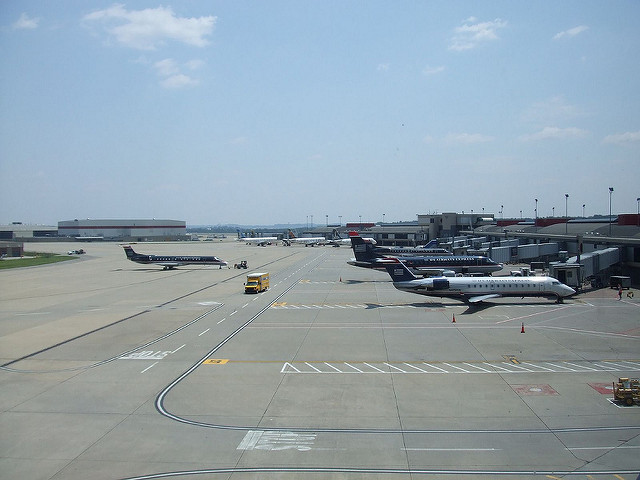In Pennsylvania, the boss for Pittsburgh International Airport has stated that she is “very interested” in proposed legislation that would legalize online gambling and permit the eastern state’s airports and off-track betting establishments to offer video slots.
According to a report from the Pittsburgh Post-Gazette, Christina Cassotis, Chief Executive Officer for the Allegheny County Airport Authority, explained that any money the Findlay airport raised from gambling would be used to lower airline fees and make improvements to its terminals.
“We’re watching it closely,” Cassotis told the newspaper. “We care a lot about it because of its potential but it’s too soon to start making any plans.”
The proposed measure passed through the Pennsylvania House Of Representatives last week and is now due to go before the Pennsylvania Senate. If approved and subsequently signed into law by Democratic governor Tom Wolf, the legislation would allow sponsoring casinos to install video slot machines at the state’s six international airports for use by ticketed passengers. It would additionally permit the installation of “multi-use tablets” in airport lounges and restaurants for online gambling and other purposes such as browsing the Internet or ordering food and drinks. In return, slots would be subject to a 54% tax rate with 20% of this amount earmarked for airports while tablets would be taxed at 34% with airports again benefiting to the tune of 20%.
Although supportive of the measure, Cassotis told the newspaper that airport gambling must be offered in a way that would enhance customer experience without detracting from current concessions. She declared that Pittsburgh International Airport would confine gambling to its airside building where travelers board and get off airplanes.
She explained that the proposed legislation would see the Pennsylvania Gaming Control Board decide the size of the slot estate based on plans developed by casinos and airport officials. In addition, Pittsburgh International Airport would be required to pay a fee of $2.5 million to install slots while tablet gambling would involve an outlay of $1 million.
Nick Kotik, a Democratic member of the Pennsylvania House Of Representatives and one of the main sponsors of the legislation, stated that he is confident the measure will ultimately be approved.
“I think the chances are especially good,” Kotik told the newspaper. “We need the revenues and there’s no appetite for a broad-based tax increase whether it’s sales or income.”
Kotik estimated that the legislation, which would moreover permit racetrack casinos to add slots to their off-track betting establishments, could generate as much as $600 million.



